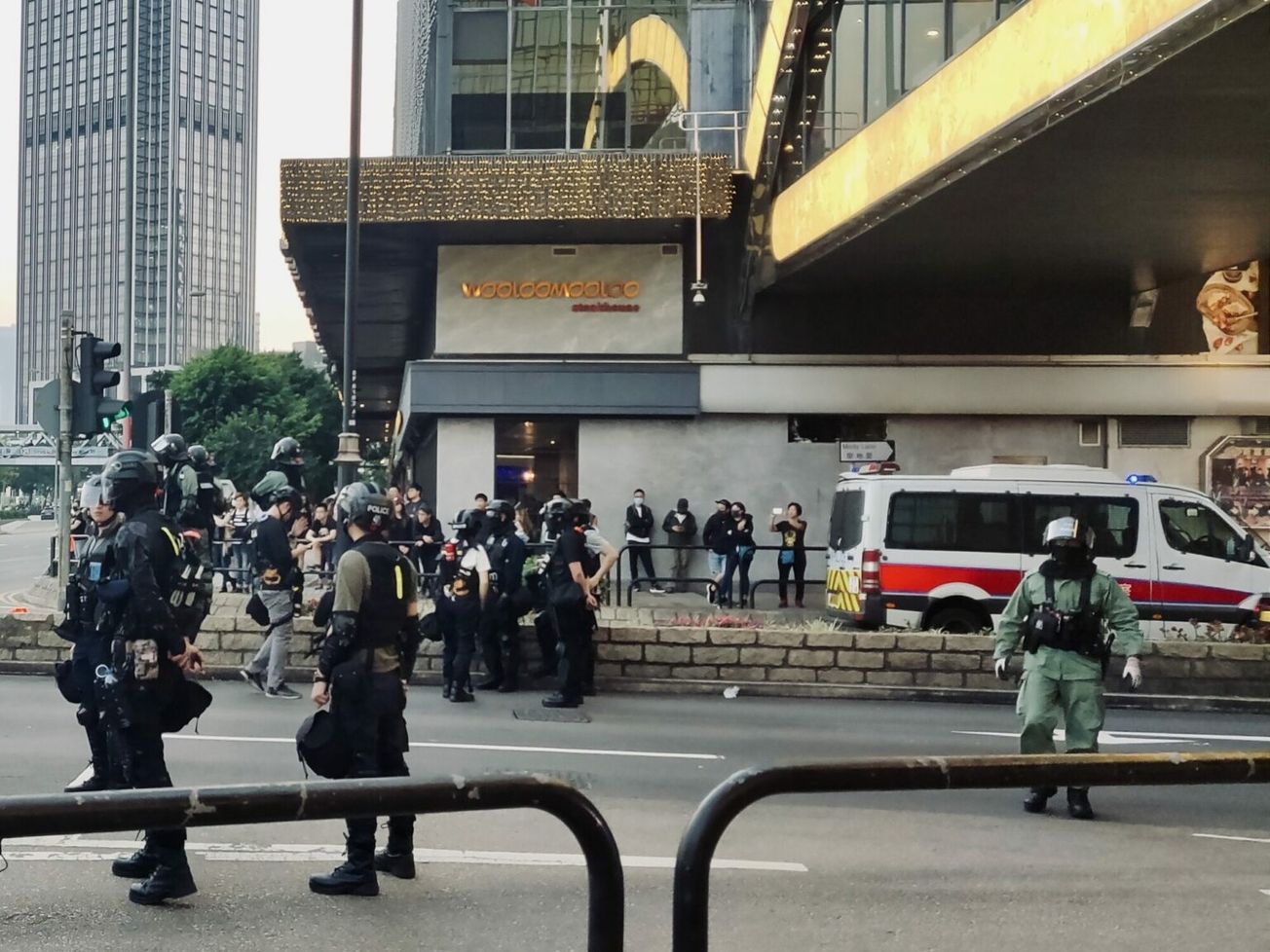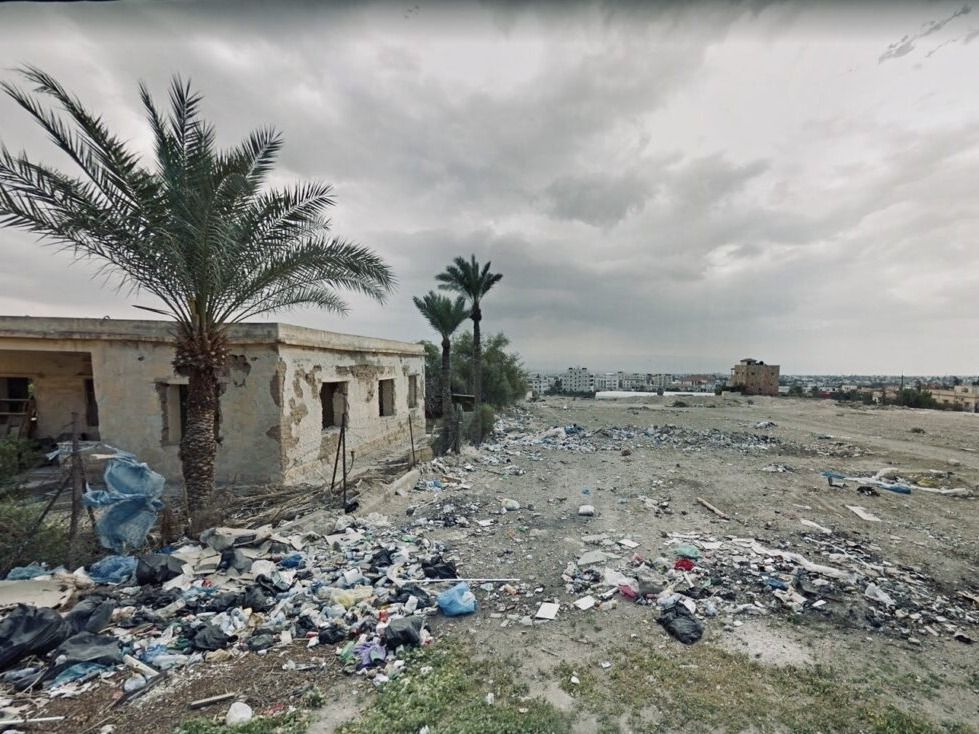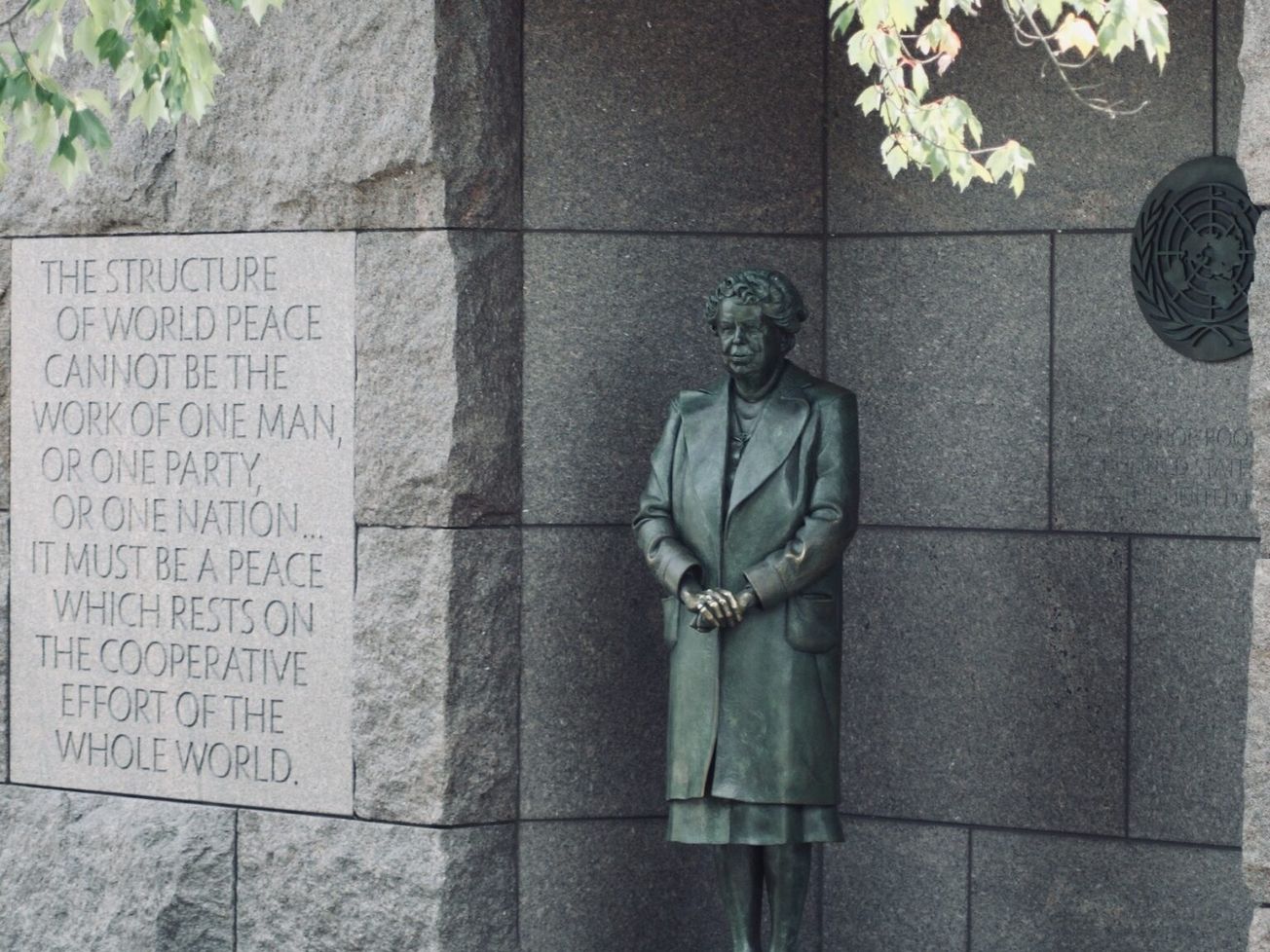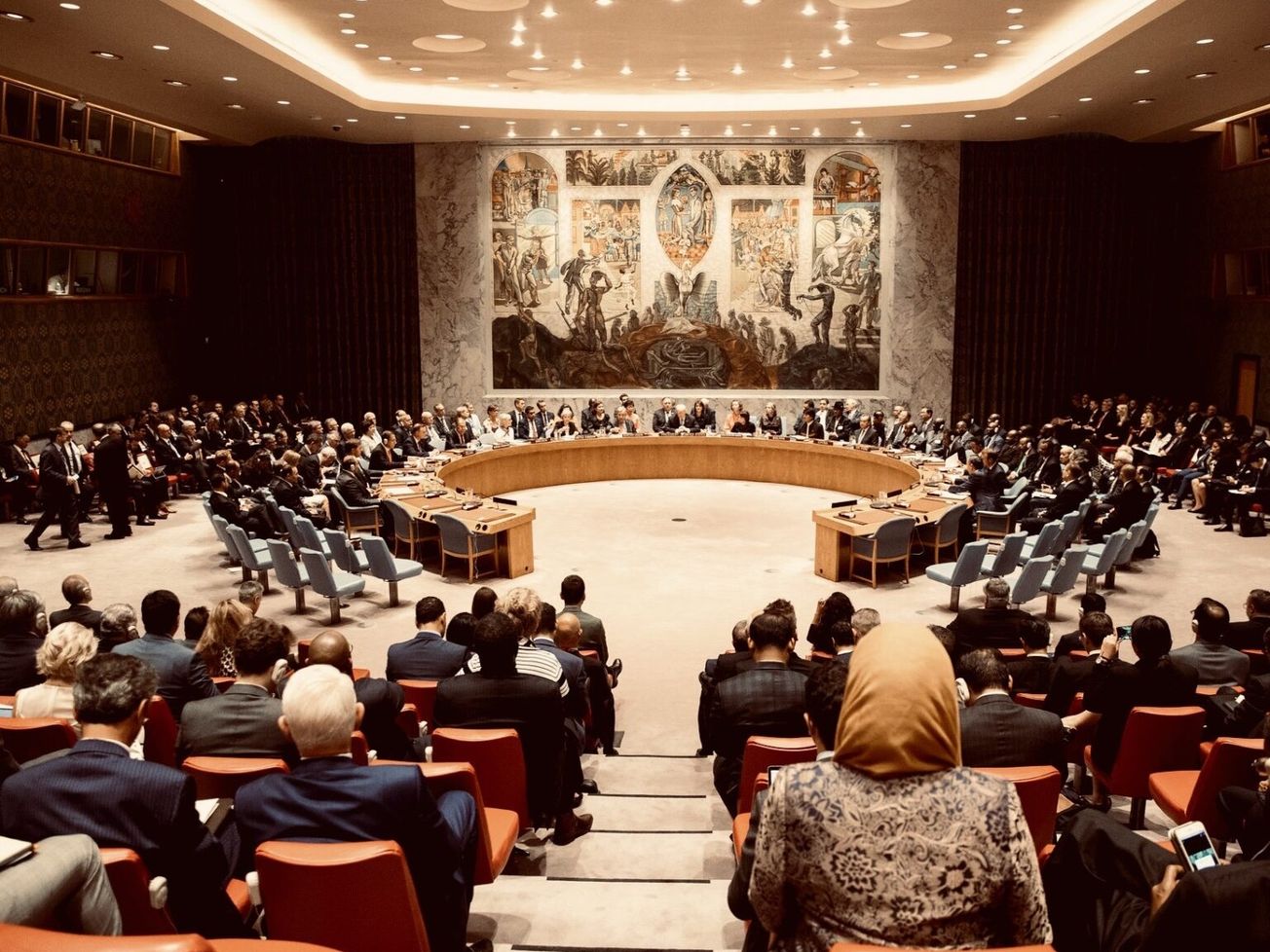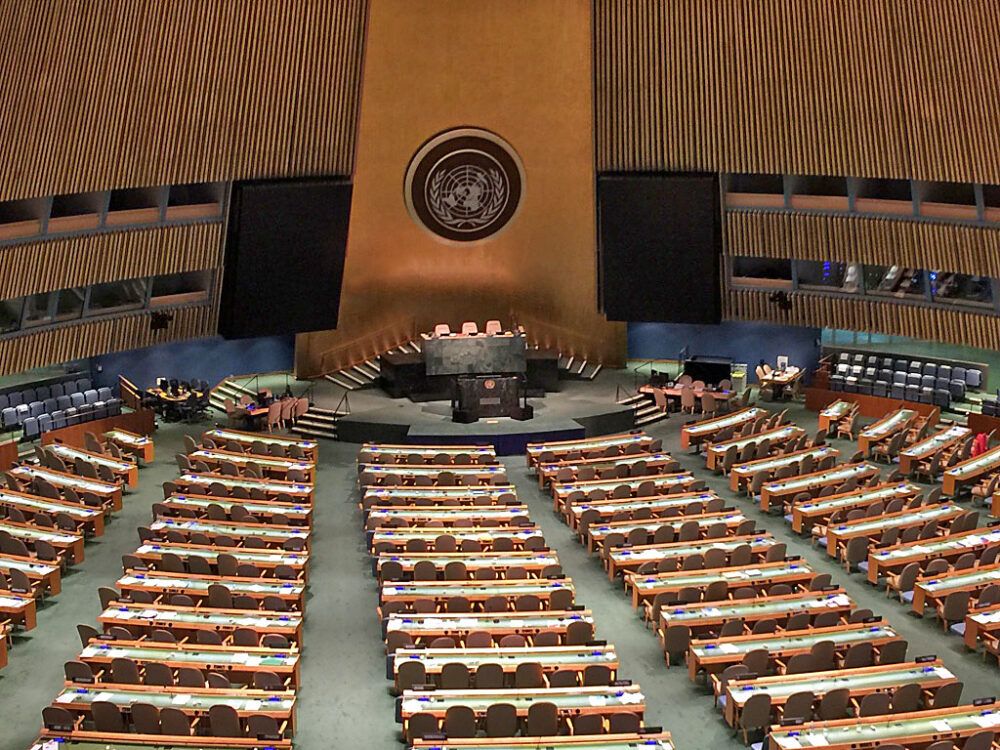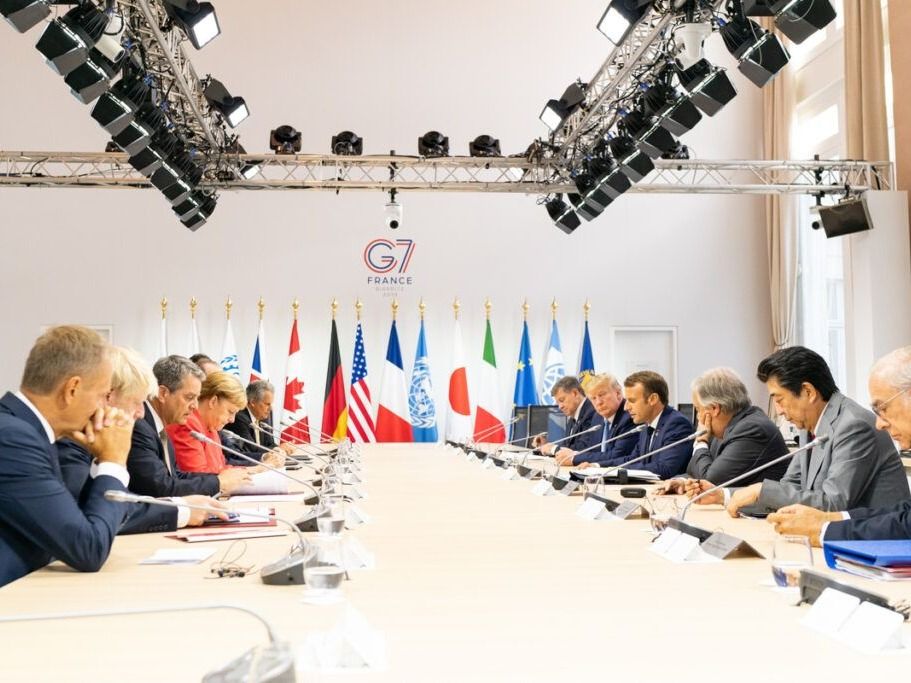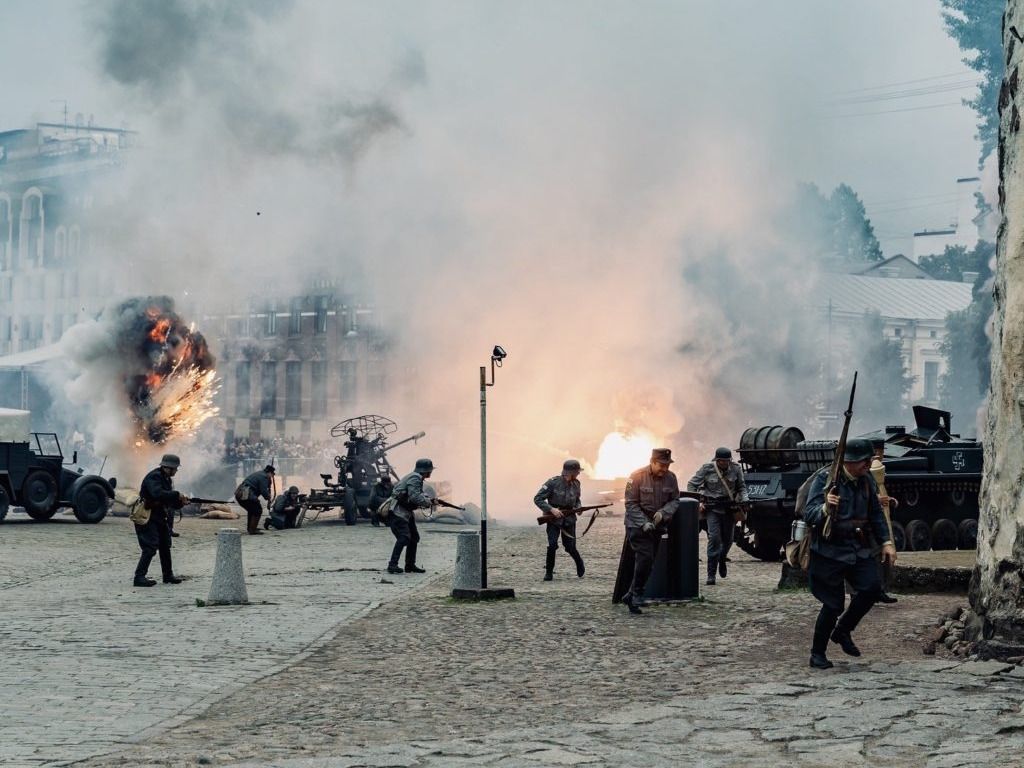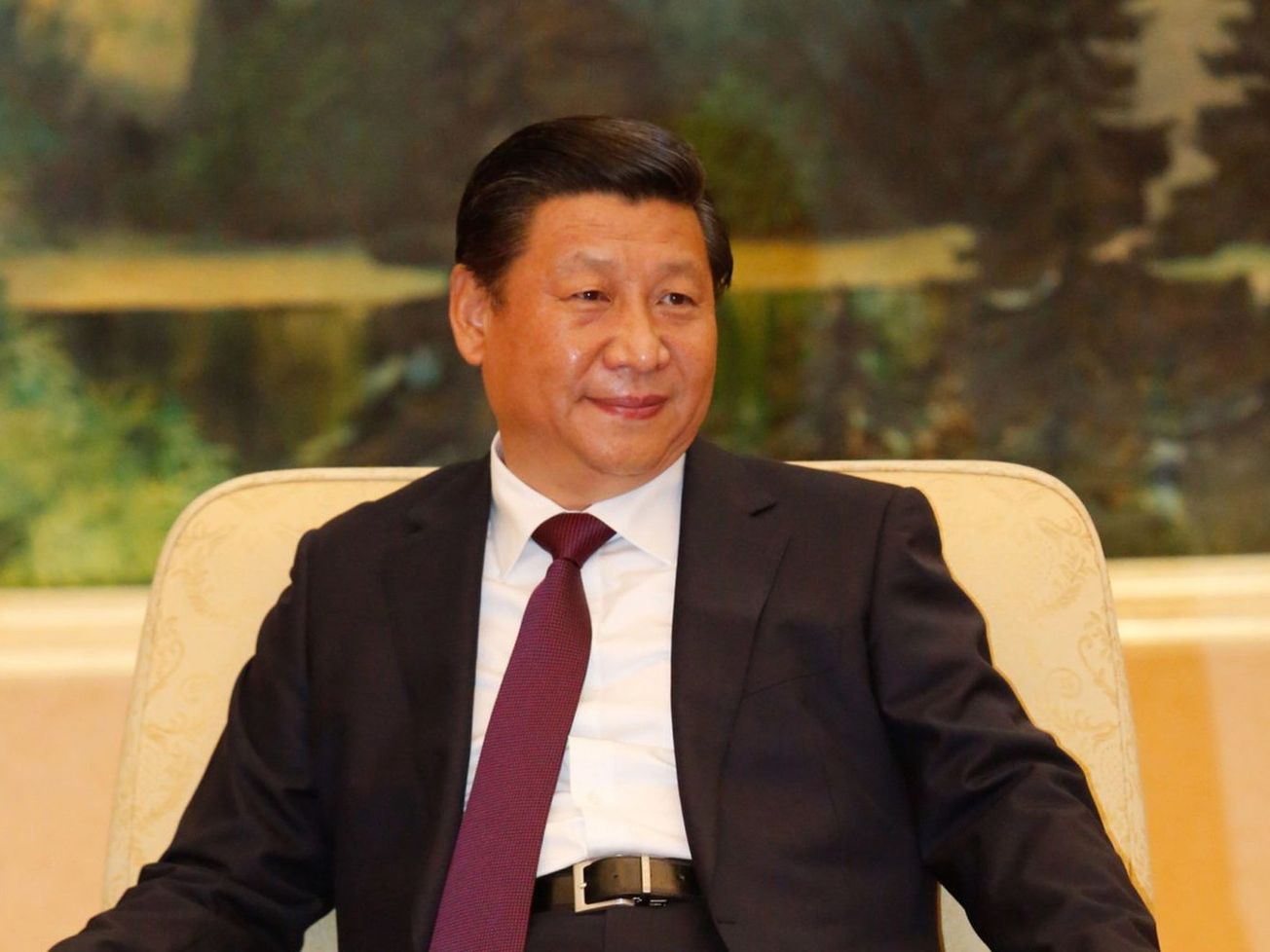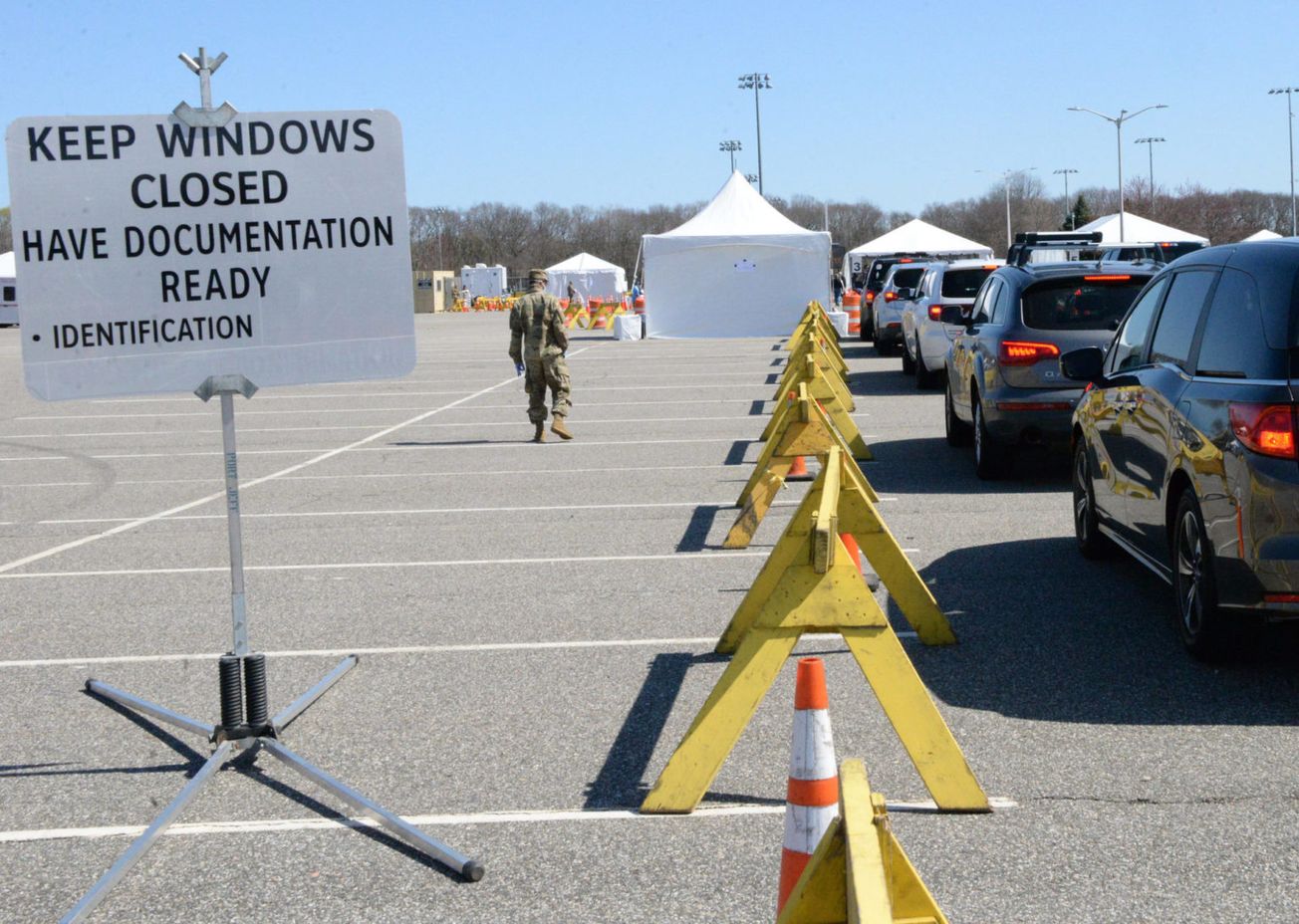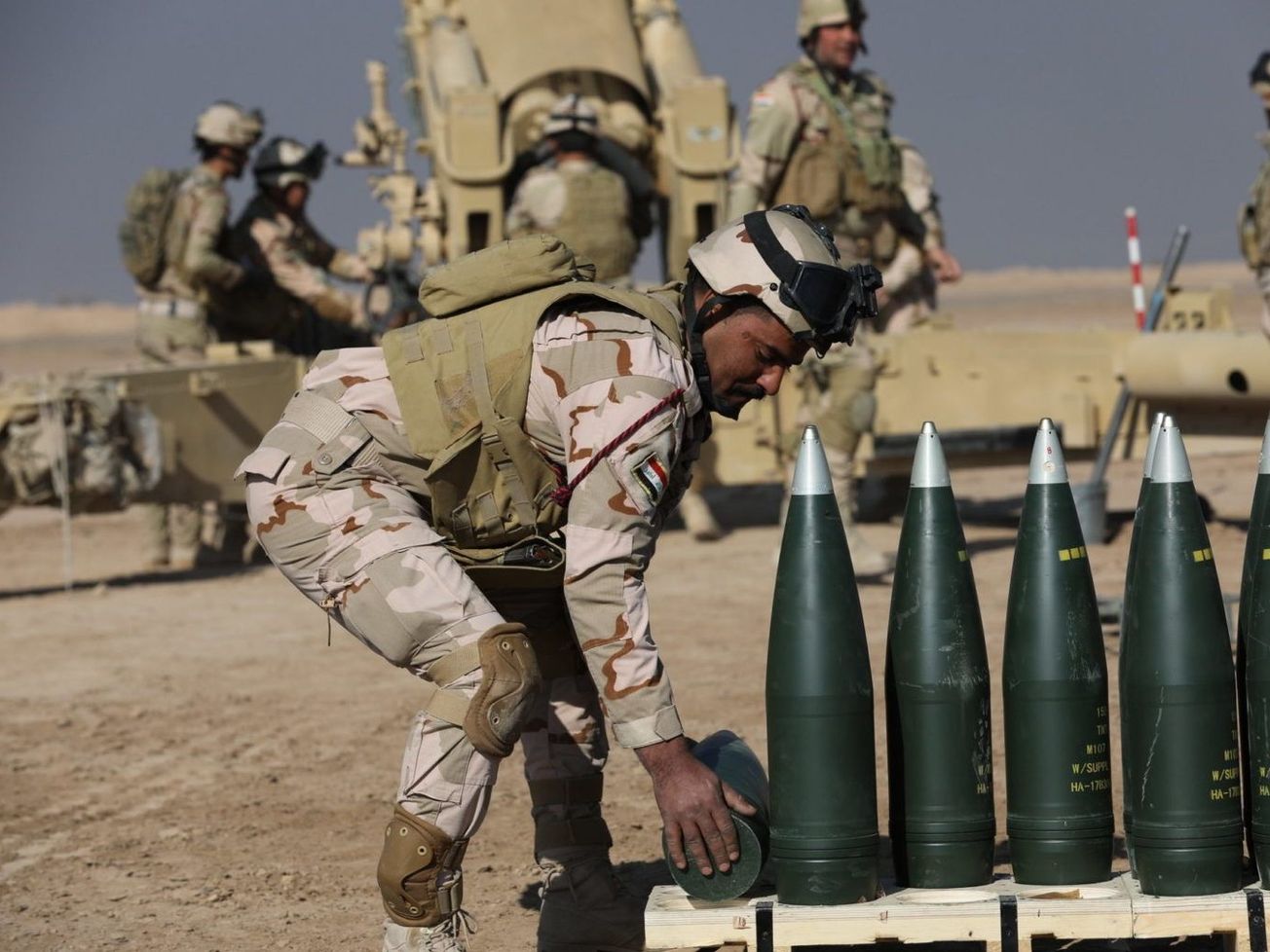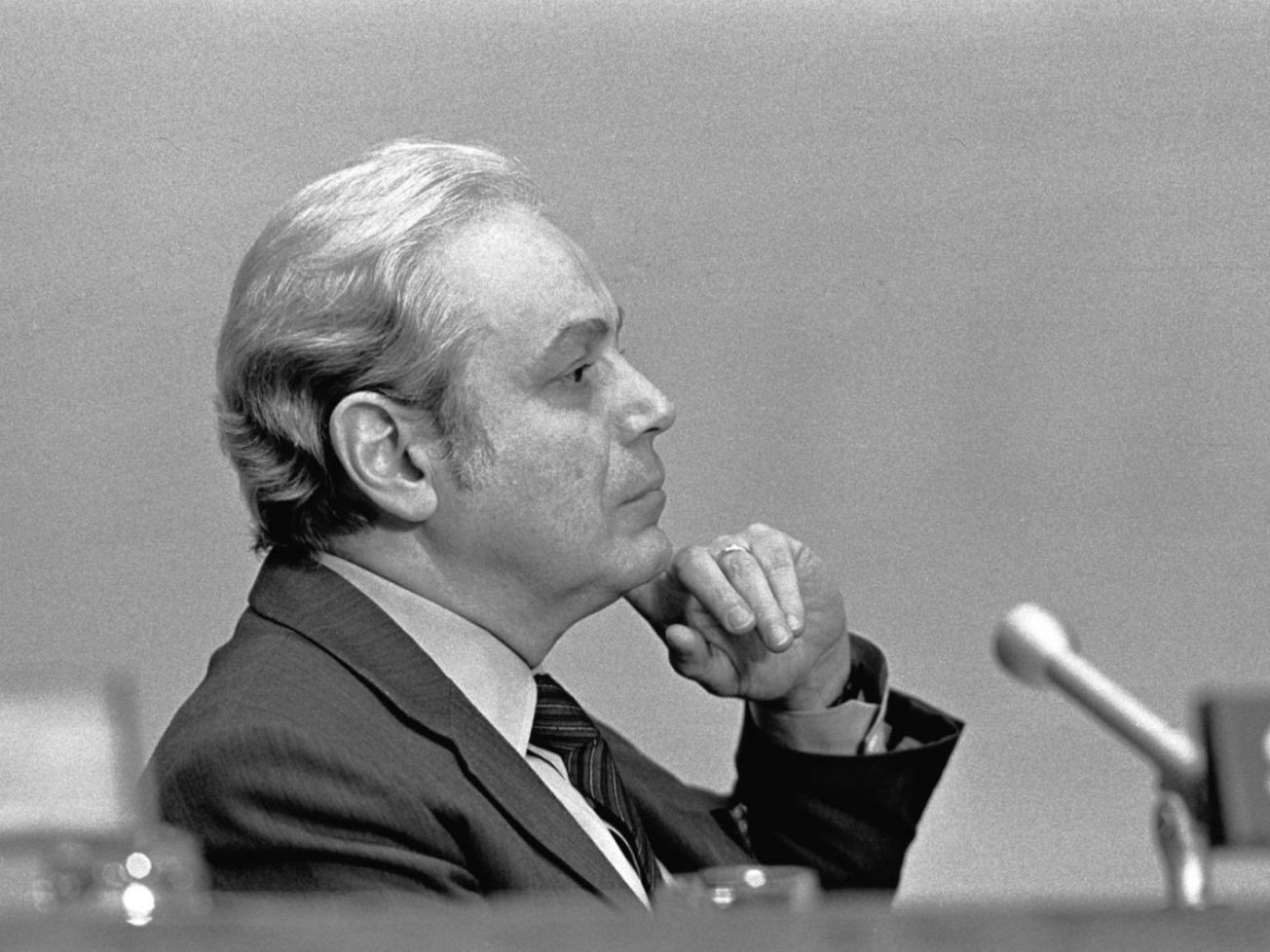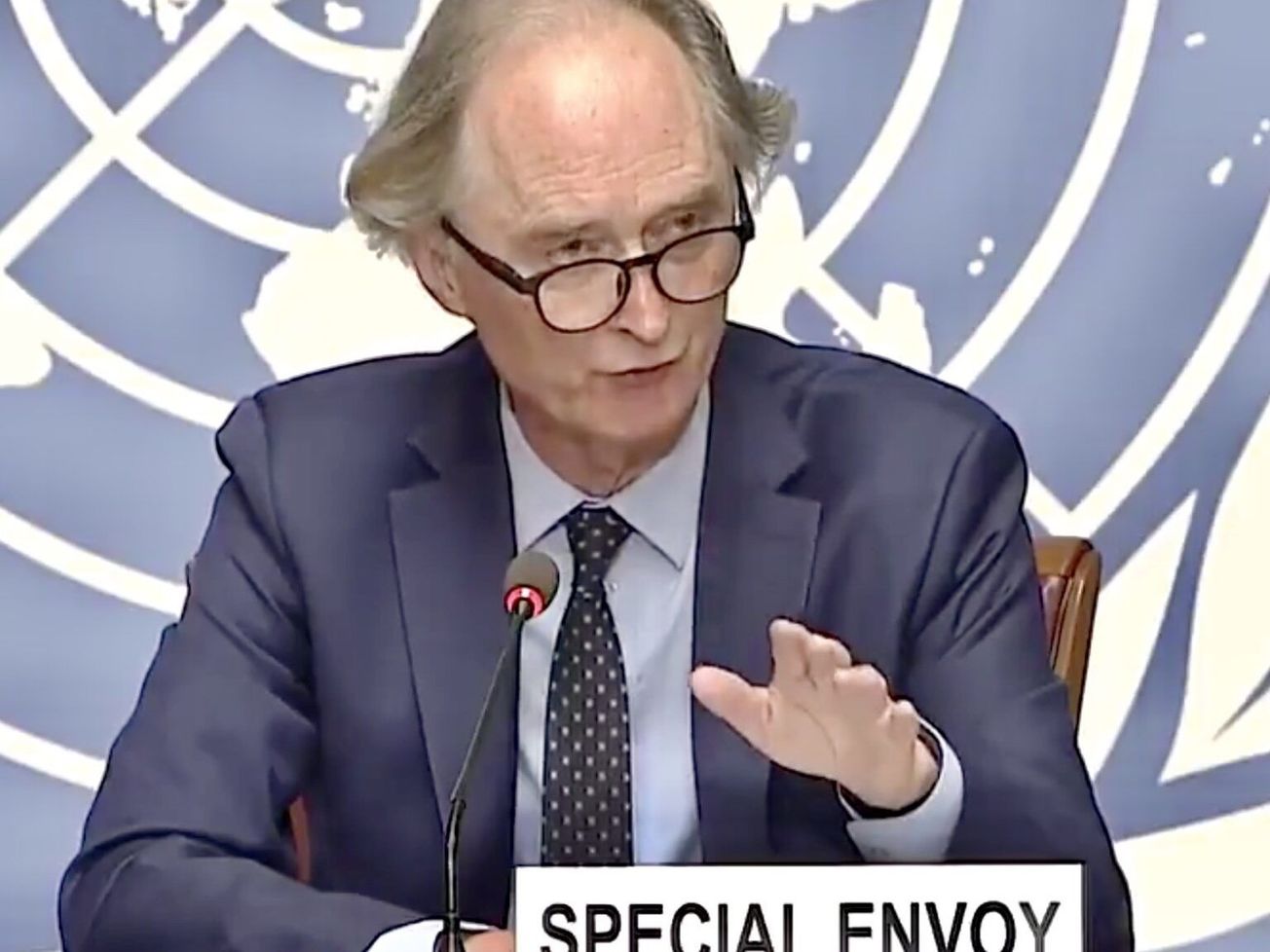
Envoy says Syrian peace talks restoring trust
The U.N. special envoy to Syria said peace talks built "a little bit" more confidence and trust among government, opposition and civil society representatives.
The world's multilateral efforts to solve global challenges are based on a post-World War II political and economic order that is struggling to navigate the 21st century's multipolarity and rise of authoritarianism: the U.S.-China rivalry, Russia's war in Ukraine, Israel and Hamas, the West's conflicts with North Korea and Iran, the crisis in Afghanistan, coups in Africa, and unrest in the Americas over deep-rooted injustices, biases and inequalities.

Already have an account? Log in
The U.N. special envoy to Syria said peace talks built "a little bit" more confidence and trust among government, opposition and civil society representatives.
China announced economic sanctions on 11 NGO leaders and U.S. lawmakers, in a retaliatory move against outspoken critics of its crackdown on Hong Kong.
Eight contenders from Britain, Egypt, Kenya, Mexico, Moldova, Nigeria, Saudi Arabia and South Korea have until September 7 to campaign for the job of WTO chief.
An independent group of global leaders appealed to European leaders to "stand firm" against Israel’s threat to annex parts of the occupied West Bank.
ASEAN leaders pushed back at China, asserting a 1982 U.N. treaty should serve as the basis for resolving disputes over claims in the South China Sea.
The U.N. Charter, signed 75 years ago at the end of the U.N. Conference on International Organization in San Francisco, remains a global "touchstone."
Kenya won election to the U.N. Security Council, joining with India, Ireland, Mexico and Norway in gaining a seat on the world body's most powerful arm.
Due to the coronavirus pandemic, the United Nations will not summon world leaders to its annual gathering for the first time in its 75-year history.
U.S. President Donald Trump told reporters will delay the annual G-7 summit until fall, after German Chancellor Angela Merkel declined an invitation.
Under U.S. pressure, the World Health Assembly unanimously approved a resolution calling for a review of WHO's pandemic response.
The U.S. blocked a U.N. Security Council vote to end global hostilities amid a pandemic — the same day diplomats emphasized lessons from World War II.
China raised its donations for the WHO's pandemic efforts to US$50 million a week after U.S. President Donald Trump halted the U.N. agency's U.S. funding.
The U.N. chief called for a global cease-fire to help vanquish the pandemic, imploring warring parties to disarm and fight the virus as a "common enemy."
Almost 5 million children in Syria have known nothing but war for nine years while another 1 million were born as refugees into a harsh life, UNICEF reported.
The E.U. has a new strategy for relations with the A.U. that emphasizes an overhaul in climate and digital policies to end a legacy of colonialism and aid.
Javier Pérez de Cuéllar, the fifth U.N. chief from 1982 to 1991, who arranged an Iraq-Iran cease-fire and aided democracy in his native Peru, died at age 100.
